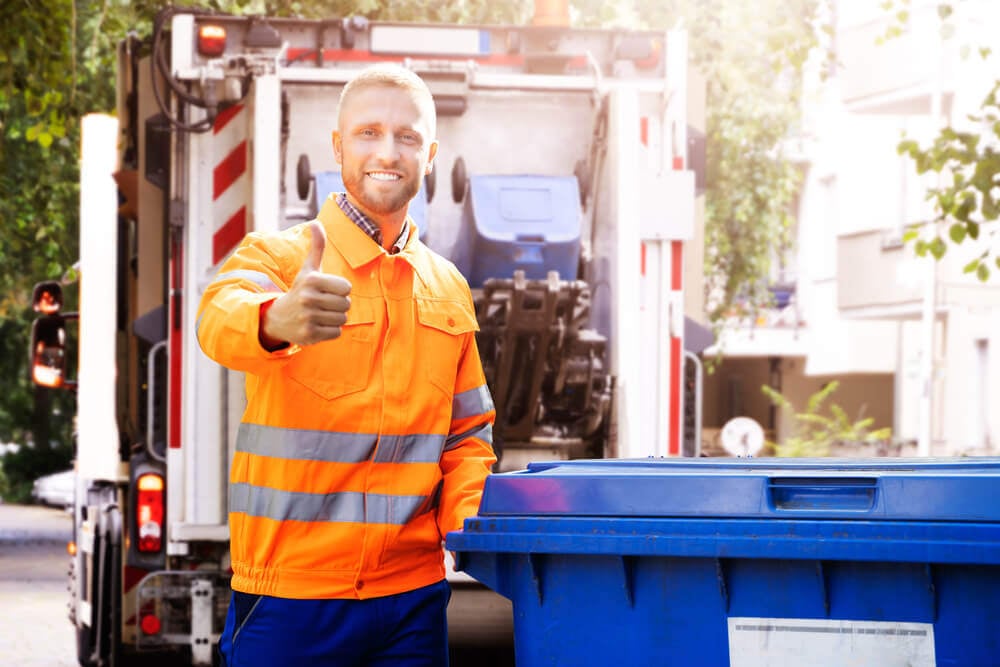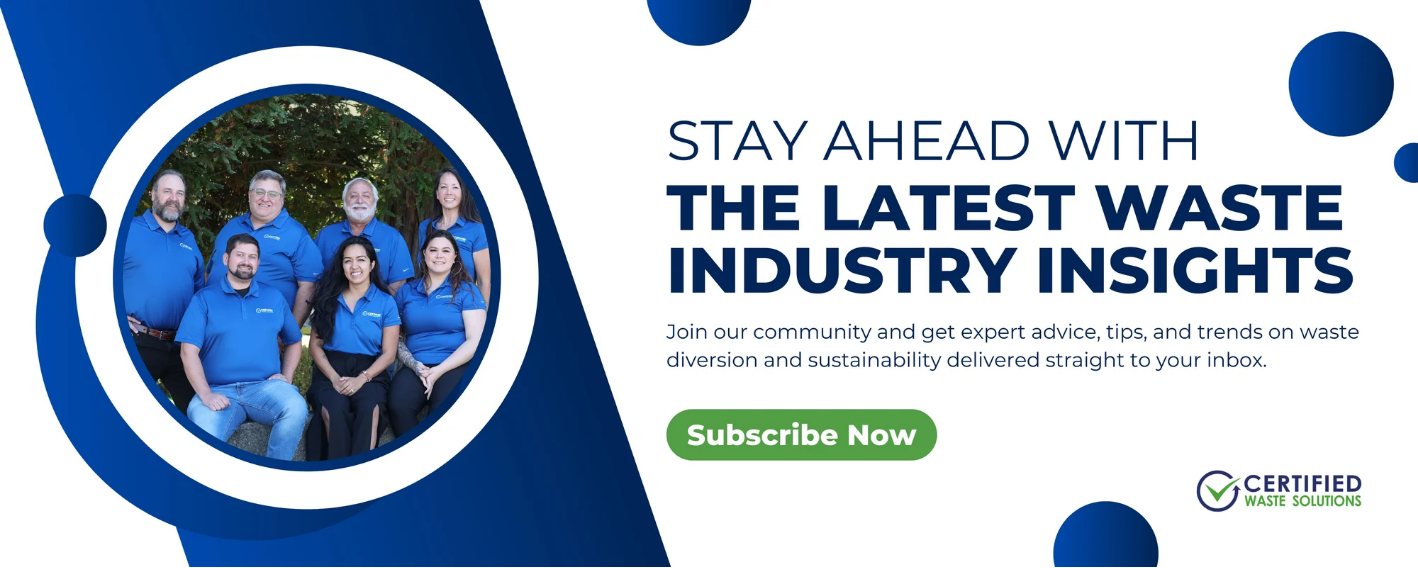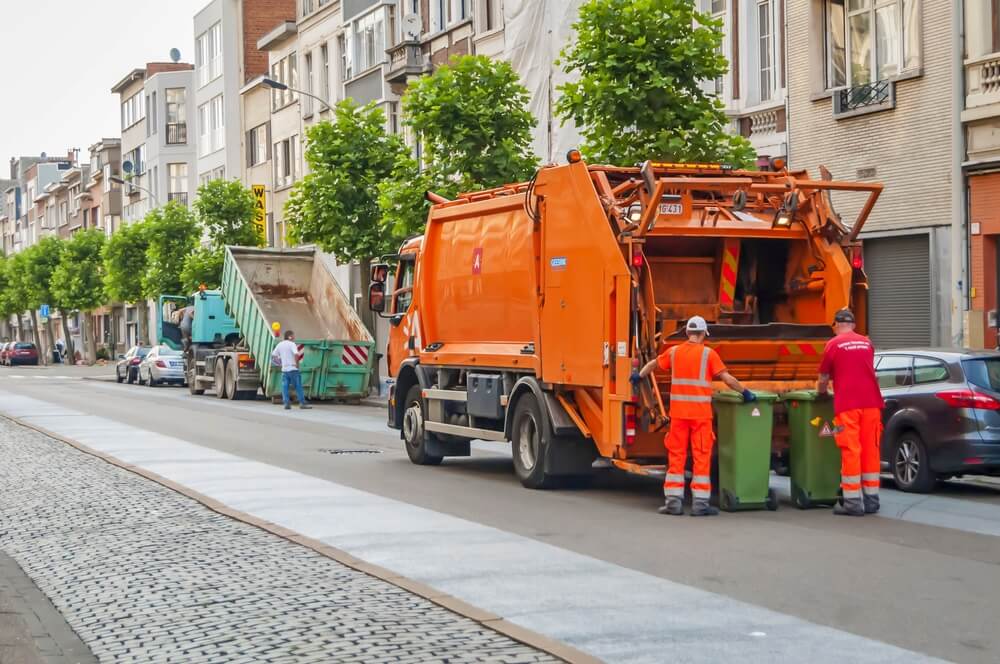Local governments have a critical role in determining how waste management is carried out. They are tasked with developing plans and strategies to ensure efficient waste handling as well as promoting recycling and waste reduction initiatives to minimize environmental impact. Furthermore, it is their duty to organize and oversee waste collection and transportation services within their jurisdiction to maintain cleanliness and public health. All of which is no easy feat.
To add another layer of complexity, implementing waste management solutions is not a one-size-fits-all endeavor. The rules vary from one location to another, making it difficult for businesses and individuals to determine which regulations apply, what materials can be recycled, and how they should be sorted. Keeping up with ever-changing requirements and holding city-designated haulers accountable—especially across multiple jurisdictions—can feel overwhelming.
However, with managed waste services as your partner, you gain a trusted guide to help you navigate these challenges. These services not only clarify your waste management options but also help you optimize efficiency, enhance sustainability efforts, and identify cost-saving opportunities.
In this post, we’ll explore the key responsibilities that managed waste service providers expect from municipalities and the action items they ensure are implemented on your behalf.
How Local Municipalities Can Optimize Their Waste Management
Below, you’ll find strategies your local government should be executing to streamline waste management processes.
Strategies for Optimal Waste Management
When it comes to managing waste, municipalities must navigate a maze of regulations to remain compliant and avoid fines while ensuring efficient, economical waste management services. To make things even trickier, in many regions, waste removal providers and recycling capabilities may be limited, further complicating efforts to implement sustainable solutions.
Despite these challenges, innovative strategies and financial resources—such as grants and public-private partnerships—can help ease budget constraints. By advocating for these initiatives, residents can encourage community leaders to adopt best practices that enhance sustainability and unlock funding opportunities to support vital waste management infrastructure.
Below are proven strategies municipalities can implement to optimize waste solutions, maximize efficiency, and reduce costs.
1. Teaching Good Recycling Habits
One of the most impactful steps municipalities can take is educating residents on best practices for recycling. When communities understand how to correctly sort and dispose of recyclables, they help reduce downstream contamination and conserve valuable resources. With approximately 75% of municipal solid waste (MSW) being recyclable, it's essential that municipalities provide clear guidelines that allow anyone to easily identify and separate materials like plastics, glass, and metals from their general waste and prepare it for recycling.
Educational tools that help support these behaviors include easy-to-find and navigate web-based resources as well as providing clear & adequate signage. Additionally, community-wide initiatives like workshops, regular social media tips, or even interactive recycling challenges can increase community engagement and introduce people to good recycling habits in a fun manner. Well-informed local participation ensures smoother operations for waste collection and processing teams.
2. Adopting Composting Initiatives
Did you know that items such as paper, food, yard waste, wood, and even some packaging materials are compostable? Often referred to as organic waste, these commonly landfilled materials make up a significant portion of our MSW. However, better end-of-life (EOL) options for them do exist! Setting up a local composting initiative is not just an environmentally friendly choice but also a practical one. Composting programs can transform food and yard waste into nutrient-rich fertilizer that can be given back to the community for local gardens, sold as a small revenue source, or even used to maintain parks.
Look to leaders like California, where composting organics has become a common practice and a legal requirement. By moving toward sustainable solutions like composting, municipalities can reduce unnecessary waste to landfills, avoid fines, and lead by example.
3. Investing in Modern Waste Sorting Technology
Traditional waste sorting can be time-consuming and costly for municipalities, but modern technology offers a way to help with this. Automated sorting systems can vastly improve efficiencies, separating recyclables, organic waste, and general trash with precision. These systems may have upfront costs, but the long-term benefits include reduced labor expenses and higher resource recovery rates.
If your municipality is growing or struggling to keep up with sorting demands, it might be time to consider potential technological upgrades. Options that align with local budgets exist, and you can voice to your elected officials at the municipal, county, or state level your support to invest in it.
4. Optimizing Waste Collection Routes
Fuel costs and vehicle maintenance place a heavy financial burden on municipal waste collection services. Route optimization can reduce these costs significantly while increasing collection efficiency. The technology to support this is easily accessible and inexpensive. These tools rely on systems like GPS and AI to map out the fastest, most fuel-efficient routes for vehicles collecting waste, making a noticeable difference both operationally and environmentally.
5. Encouraging Public Education on Waste Reduction
Education is always a winning strategy, especially when it comes to waste reduction. Local governments can empower residents with skills to repurpose, repair, or resell items rather than discard them. For example, free or low-cost DIY workshops about refurbishing old furniture or creating reusable household items can inspire innovative waste reduction behaviors.
Another idea? Organize community resale events, like flea markets or thrift fairs, where residents can buy and sell gently used items instead of sending them to the landfill.
6. Introducing Pay-as-You-Throw Programs
PAYT programs are a forward-looking way to motivate communities to reduce waste. With these systems, residents are charged based on the quantity of non-recyclable waste they dispose of. The less waste they generate, the less they pay. It’s an effective way to foster mindful habits around waste sorting and reduction. Plus, it helps municipalities cut landfill costs and promote environmental responsibility at a local level.
7. Partnering with Private Managed Waste Companies
Municipalities shouldn't have to tackle their waste management challenges alone, and neither should you. Partnering with private managed waste companies can bring technical expertise and innovative solutions to help with everything from operational efficiency to advanced recycling processes. These providers also offer resources that some municipalities may not have in-house, like cutting-edge sorting technologies or data-driven insights about local waste generation.
To explore your options, consider connecting with a managed waste service provider. Learn how they can help you optimize every step of the process and achieve your preferred sustainability goals.
Work with CERTIFIED to Handle Your Waste Needs
Are you confident your local municipalities are observing these strategies? If not, CERTIFIED’s managed waste services are here to help! With CERTIFIED on the job, you can hold haulers accountable, reduce expenses, streamline waste disposal, and create a cleaner environment for your communities. Our extensive network of industry experts, along with cutting-edge technologies and practices, enables us to provide exceptional support and innovative solutions.
Looking to take the stress out of waste management? CERTIFIED is your trusted partner in streamlining sustainability, increasing efficiency, and ensuring regulatory compliance—all without straining your budget. With 45 + years of expertise spanning diverse waste management challenges, we specialize in providing tailored solutions for businesses across all industries.
It’s time to reduce costs and elevate your waste management strategy. Reach out to CERTIFIED today to learn more.
.png?width=320&height=80&name=CERTIFIED%20Waste%20Solutions%20Logo%20Vector%20NO%20Tagline%20(4).png)




.jpg)
.jpg)
